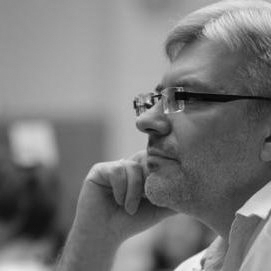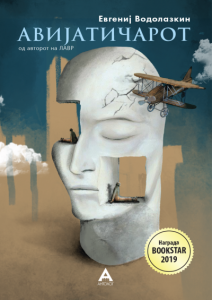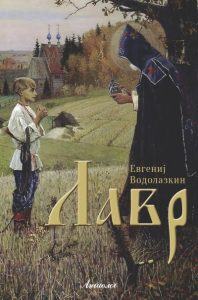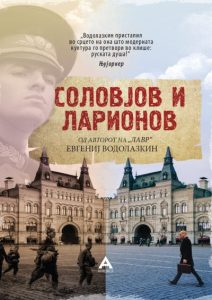 EUGENE VODOLAZKIN
EUGENE VODOLAZKIN
Russia
Eugene Vodolazkin is a Russian writer born in 1964 in Kiev, Ukraine. Since 1990, he has been working in the Department of Old Russian Literature, where he is a leading research associate. He is the author of more than a hundred works related to ancient and modern Russian literature. He teaches at universities in Munich and St. Petersburg. His novel "Laur" won the "Big Book" and "Jasna Polyana" awards in 2013. It has been translated into more than 15 languages. History is his primary inspiration, whether the turbulent times of the October Revolution or the legacy of Byzantine culture.
 The Aviator
The Aviator
Translation: Gjorgji Krstevski
"The Aviator" begins with a mystery. Innokenty Petrovich Platonov wakes up in a hospital in 1999, with no memory of who he is or how he got there. Although he looks like he is thirty years old, we gradually realize that he is older than a century! A real Robinson Crusoe, cast ashore in a strange modern world that he does not understand and from which he is de facto isolated. How exactly did it arrive in the post-Soviet era, apparently transported straight from the 1920s?
Places and moments in time from Russian culture, including revolutionary and post-revolutionary Petrograd. Platonov's unique, time-fractured biography gives him a broad perspective on Russian life: just as an aviator might survey a vast space from above, his memories date from the early Soviet period to the late twentieth century.
"The Aviator" is a work of remembering and forgetting. About the common weaving and understanding of a century in Russian history. The novel asks: What is the connection between individual and collective memory? What is more important in our understanding of the past: the great historical events or the small details of everyday life, such as sounds and smells?
 Laurus
Laurus
Translation: Pavel Popov
"Laurus" introduces us to Arseniy, born in 1440, raised by his grandfather, a herbalist, who lives near the Kirilo-Beloezersky monastery, five hundred kilometers north of Moscow. He becomes a famous healer and prophet who "smote demons with stones and talked with angels." The people respect his calm spirituality. Vodolazkin goes straight to the heart of the Russian religious experience, intimate yet cautious and occult. A view of medieval Christianity whose keys are prayer and faith. Completely without irony – an effort to dig out the meaning from Russia's distant past.
"Vodolazinkin's faith is neither ecstatic, like many forms of Western Christianity, nor hierarchical, like Eastern Christianity, nor scientific, like Judaism, but a simple search for inner peace!" - "The New Yorker"
Arsenius, crucified after the death of his wife, travels to the city of Pskov, then Lithuania. He goes decades without uttering a word, most of his silent prayers are not with God but with the spirit of Ustina.
 Solovyov and Larionov
Solovyov and Larionov
Translation: Pavel Popov
Solovyov is a young historian who comes to St. Petersburg to investigate the personality of the White Army general, Larionov, who led the troops against the Bolshevik revolution. He then travels to the Crimea to search for the missing pages of the general's diary. Larionov's search for the truth is the driving force of the book, which depicts the events of Solovyov's life. There he meets the charming Zoya, who works at the Chekhov Museum in Yalta.
Undoubtedly, we have a new literary genre – the historical detective novel. This historical record becomes as fluid as any other life story that was passed down orally. Larionov is a legend. There is often a comedic tone that keeps it from being just a philosophical bildungsroman.
The description of the academic world in which Solovyov finds himself is familiar to anyone who has passed through those corridors. Vodolazkin manages to convey the comedy of the academy without turning satire into farce. The presented limitation of scientific pursuits is contrasted with the serious intent of Soloviev's emotional and intellectual exploration. An account of thought processes that brilliantly transitions into a historical study.
